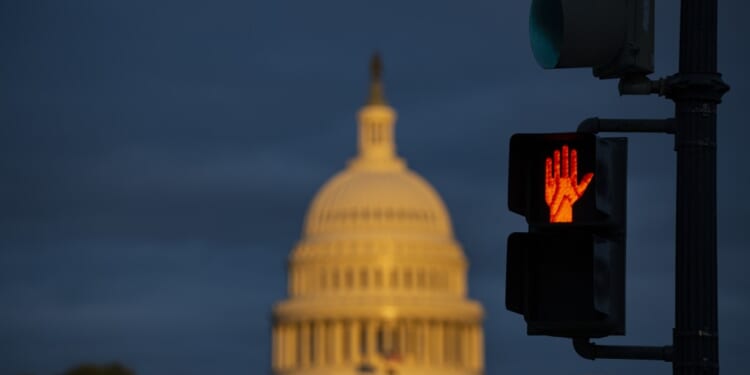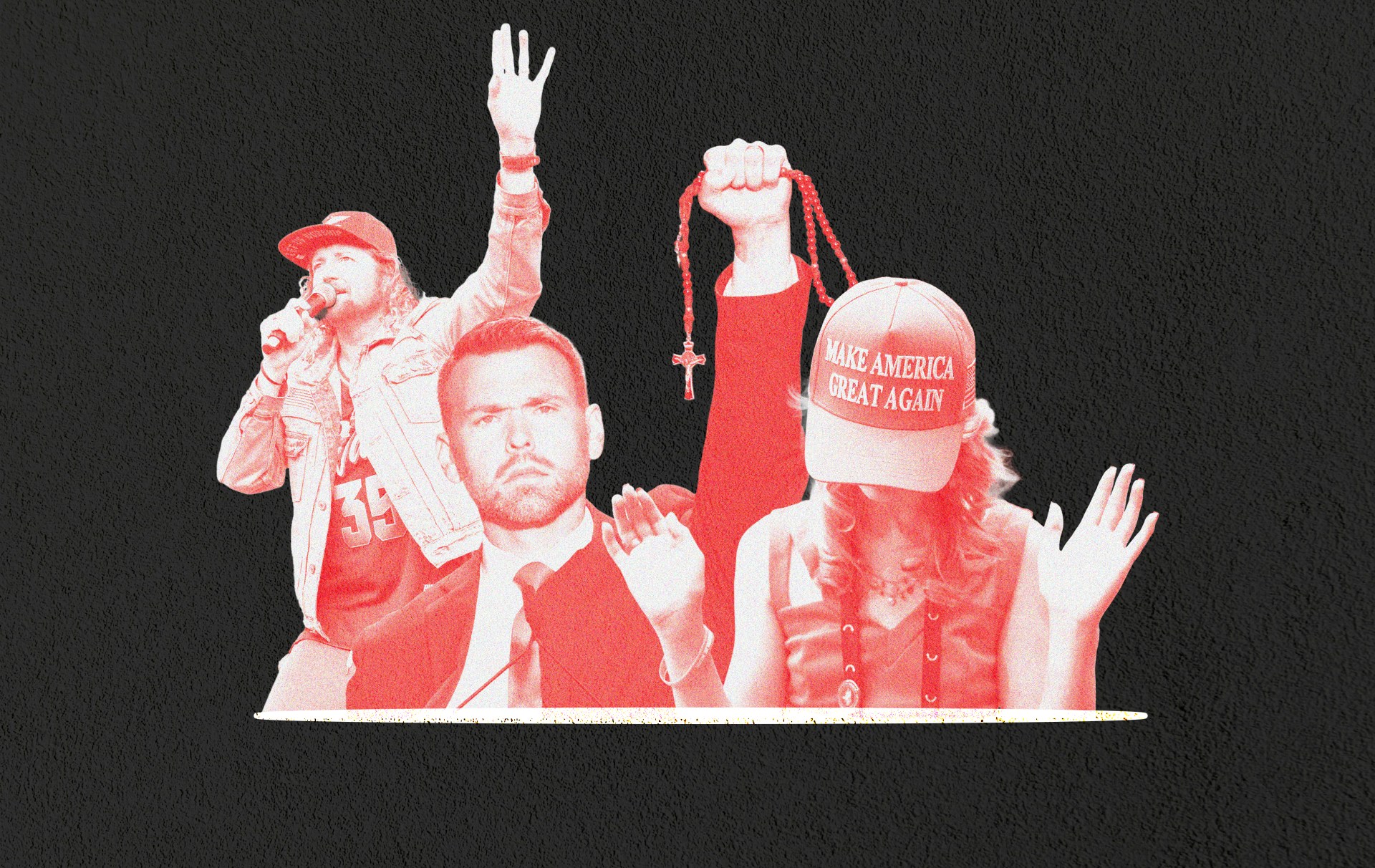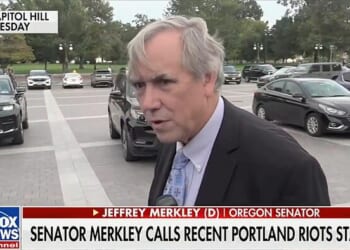You’re reading Dispatch Weekly, our regular roundup of the best stories and reporting we published this past week. Looking for more ways to support our work? Consider becoming a Dispatch member today.
Hello and happy Saturday. The government has been shut down for nearly three weeks now, with no end in sight. Speaker Mike Johnson announced Friday that the House would not be in session next week. Were we living in a simpler time, you’d probably hear lots of jokes about how, well, at least when Congress isn’t working they can’t spend our money. But Congress shutting down the government is only the most explicit expression of its dysfunction.
The legislative branch has been ceding its authority to the executive branch for decades, something we’ve written about at least dozens of times by now. That gradual abdication of duty creates problems enough on its own, but when you combine that with the majority party being in thrall to a president with authoritarian tendencies you get … our current situation.
President Donald Trump has spent much of his second term unilaterally implementing (then pausing, then reimplementing, then adjusting) tariffs on imports from both allies and adversaries, despite tariff policy nominally being the purview of Congress. But he also implemented tariffs on spurious national security grounds in his first term. This week, Kevin D. Williamson wrote about how those tariffs have upended the global soybean market. China formerly imported a significant amount of soybeans from the U.S., but in response to the tariffs has turned to Brazil and Argentina. Meanwhile, U.S. soybean farmers are left hoping for bailouts from the government.
The president declared two weeks ago that we are in “armed conflict” with drug cartels, justifying his deployment of ships to the Caribbean Sea off the coast of Venezuela, which is … not a major supplier of narcotics to the United States. The U.S. has struck at least six boats it alleges were carrying drugs, while the administration has not offered any evidence that the targets were indeed cartel members or transporting narcotics. While presidents have long carried out military campaigns without a full declaration of war by Congress, they generally have carried out those military actions through congressional authorizations of military force. As Nick Catoggio wrote in Boiling Frogs (🔒) on Thursday, “Not only has Congress not authorized any of this, it appears only vaguely aware of what’s going on. If you believe the latest reporting, military officers at the highest levels are uncomfortable with the mission.”
In the Wednesday G-File (🔒), Jonah Goldberg blends pop culture and philosophy as he only can, asking, “What is the most Madisonian line from Animal House?” After highlighting a few examples from the 1978 comedy about fraternity hijinks that illustrated the Founding Fathers’ thinking on various issues, Jonah got to his larger point:
When members of Congress take an oath to uphold the Constitution, that doesn’t just mean they shouldn’t violate it by passing laws that infringe on the Bill of Rights. It means they are honor-bound—by an oath most of them took on a Bible—to play their role. And their role is to uphold the role of the Congress in the constitutional order. That is why they are there, not to raise money for the next election or to land a gig on TV or K Street.
Their role requires them to insist that taxes originate in the House, that the executive seek approval from the Senate for treaties (which Barack Obama refused to do with his nuclear deal with Iran), to guard their exclusive authority to, among other things, declare war, allocate taxpayer dollars, and, more broadly, to produce legislation after extensive debate and deliberation.
On Friday, Nick noted that Senate Republicans could end the shutdown, if they wanted to. A continuing resolution to keep the government funded passed the House of Representatives ahead of the September 30 deadline for a shutdown, but it needed 60 votes in the Senate to avoid the filibuster, and so Republicans need at least some Democratic support. Or … Republicans could just nuke the filibuster and pass the legislation with a simple majority. So why don’t they just get rid of it? Nick has a theory:
[Senate Majority Leader John] Thune and the gang don’t want to end the filibuster because, once they do, they no longer have an excuse not to ratify garbage policies like tariffs imposed by executive whim or military attacks on fishing boats in the Caribbean.
Maybe it’s morally important to Senate Republicans to maintain an iota of distance between themselves and the president. So long as the filibuster exists, they get to keep their fingerprints off of most of his agenda. I don’t know how they sleep at night as they preside over the Duma-fication of their institution, but perhaps there’s solace for them psychologically in believing that as long as they’re prevented by the 60-vote threshold from rubber-stamping Trump’s abuses, they’re not truly culpable for them.
For what it’s worth, Trump is not merely ignoring Congress. He has also attempted, over the objection of governors and some mayors, to send National Guard troops to various cities to support the federal officers carrying out immigration raids. Judges have thwarted him from doing so in recent weeks in Portland and Chicago, but even without the National Guard on hand, the situation in Chicago is tense. The Department of Homeland Security claims it’s targeting violent criminals for deportation but has only identified a handful of violent offenders among the approximately 1,500 people detained. Don’t miss John McCormack’s reporting from on the ground in the Windy City.
Thank you for reading and, as always, have a good weekend.
John Brown, a father of 20 who outlived all but eight of his children, left three dead sons on the battlefields of his war of liberation: one at Osawatomie in 1856, two at Harpers Ferry. Another escaped to exile in sunny California, thereby adding another great American archetype to the Brown family collection. Brown’s first wife died in childbirth, with Brown’s seventh child, another son, dying with her. Abraham Lincoln had four sons and lost two of them before his own assassination: 3-year-old Eddie died of tuberculosis in 1850, and then 11-year-old Willie was lost to typhoid fever while Lincoln served in the White House. (A third Lincoln son, Tad, died a few years after his father at 18 years of age.) It was the most ordinary thing. Fathers lost sons all the time. These were men who were close to grief, who understood its true character and knew its seasons, intimately acquainted with the fickleness of Fortune. It left them with a peculiar—certainly peculiar from the point of view of Anno Domini 2025—combination of generosity and hardness. More than 1 million Americans died as a result of the Civil War, including some 700,000 soldiers, but the commander in chief of the Union forces remained capable of feeling those casualties one at a time.
It was clear to many observers that Charlie Kirk’s funeral last month put on display two versions of Christianity: the first, rooted in the gospel, in forgiveness and love; the second, rooted in justice, vengeance, and anger. Erika Kirk’s gospel versus Donald Trump’s, in a nutshell—but also Marco Rubio’s against Tucker Carlson’s, or Rob McCoy’s against Jack Posobiec’s. The contrast was shot throughout the service. How stark is the contrast? Is MAGA Christianity–the kind exemplified by Posobiec’s call to arms, or Trump’s comment that he hates his enemies–so different as to be a false religion? Are MAGA Christians who cheer on such comments akin to those who say, “‘Lord, Lord, did we not prophesy in your name, and cast out demons in your name, and do many mighty works in your name?’” to whom Jesus will reply, “I never knew you; depart from me, you workers of lawlessness” (Matthew 7:22-23)? Even to ask the question is provocative and could anger some readers. How dare I presume to judge someone’s eternal salvation by their political choices?
Hamas has been militarily broken down. Its rocket stockpiles are depleted. Many of its most experienced leaders and commanders—including the likes of Mohammed Deif, Yahya Sinwar, and Abu Obeida—are dead. Large swaths of Gaza’s vast network of tunnels—the subterranean arteries of its war machine—have been demolished by Israeli bombing. And yet, for all that destruction, the terrorist army refuses to go quietly into the night. Hamas is still feverishly trying to maintain a grip on Palestinian society. And it may have the capabilities to do so. Hamas retains much of its light arms and has gained new, enthusiastic recruits from among Gaza’s population, many of them radicalized during the war in the wake of displacement, the destruction of their homes, or the death of family members. This scenario is precisely the one many Palestinians feared when talk of a postwar Gaza began: that the day after would not be a new dawn but a replay of the same grim story—a battered Hamas, momentarily diminished, consolidating power all over again.




















